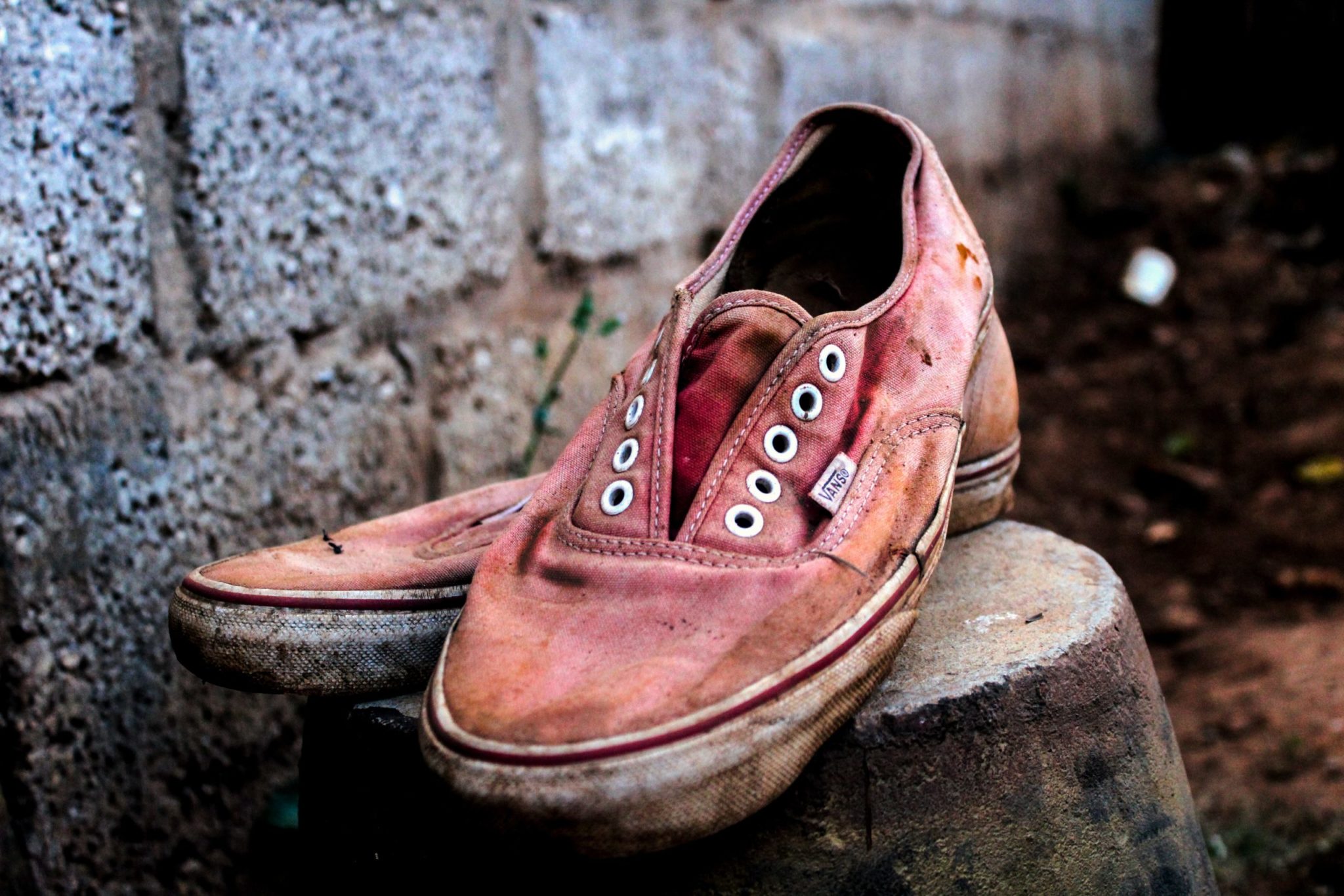
Most modern stories of Christian philanthropy come from wealthy givers living in developed nations. But sometimes, the most powerful displays of giving are from those with the least to give.
You may have heard the story from 2 Corinthians 8-9 of how God worked a miracle through one of the poorest churches in the first century – the Macedonians. This is a similar story – which happened recently – of a refugee from Somalia who learned, firsthand, the transforming power of biblical generosity.
Years ago …
I am a pastor and evangelist from Somalia.
Years ago, I married a beautiful Ethiopian woman. Although our tribes are not friends, God has given us unity in our marriage. Soon after, my wife became pregnant with our son. We celebrated our new pregnancy with our friends at our underground church.
But while she was pregnant, ethnic tensions escalated in the part of Somalia where we were living. The Somalis forcibly removed my wife from me. She fled to Djibouti to wait for me.
I was devastated. I tried to flee Somalia to be with my wife and my son who was on the way. But at the border between Somalia and Djibouti, I was stopped. Someone recognized me as a Christian, and I was thrown in prison in my country.
In prison, I was interrogated and beaten with chains. The Muslim guards took special delight in beating Christians. During beatings, they would try to get us to give up names of other Christians.
We worked in the fields during the day and were confined in handcuffs and legcuffs at night. We worked barefoot, and our feet became cracked and swollen. The heat and humidity in the prison choked us. We were given enough food to stay alive, but just barely. We never received new clothes, so our clothes became sweaty rags.
At the same time, my wife worked and began to raise our son without me.
One day, I had already been beaten and was back in my cell, trying to close my wounds, and asking God to forgive the prison guards. It was another Christian’s turn to be beaten, and under the duress of the torture, he told the guards that I was not just a Christian, but also an evangelist.
The guards marched back over to my cell and began beating me again. To them, believing the gospel was bad. But spreading the gospel was worse.
I am proud to say that, because God strengthened me, I never gave up others’ names.
A movement of generosity in Ethiopia
After more than four years, I was released from prison and sent to Ethiopia, where my family was then living. I was eager to see my wife and meet my son. His fifth birthday party was the first one that I attended. What a joy.
That was 11 years ago now. God has blessed my wife and me with two more sons, restoring the years that the locusts had eaten.
Many Somalis have fled from our country to Ethiopia as refugees. Ethiopia’s difficult economy makes life challenging for almost everyone. Jobs are scarce. Famine continues to ravage much of the country. And though it can be hard to be an Ethiopian, it’s much harder to be a refugee in Ethiopia. We are excluded from the few jobs that there are, and we are the lowest priority for healthcare and schooling.
Once I came to Ethiopia, a group of Somali refugees called me to ask if I would be their pastor. By faith, I said “yes.” It’s my joy to serve among my people, offering God’s hope in a dark time.
As a pastor, I was invited to an event that focused on generosity. I knew that the Bible talked a lot about generosity, but I hadn’t focused on it. I thought, “If anything, everyone should be generous to me! People should be generous to pastors, right? Especially pastors among the poor, especially among poor refugees, and especially pastors among poor refugees who used to be imprisoned.”
But I was wrong.
At the generosity training, I learned about biblical generosity – that God owns it all. He is the first giver, and we give out of love for him. Giving brings joy here on earth, and we listen to his Spirit and discern his will, as he provides for all our needs. Finally, I discovered that our giving leads to treasure in heaven.
At the training, I was taught hand motions for each of these biblical principles. And after the session, I went to my family and taught them the motions.
As a family, we wondered, “What specific thing can we do to be generous? We don’t have much.”
We realized that we had some extra clothes, and that those with two shirts can share with those who have none. So we gathered our extra clothes.
Then I taught what I had learned at the generosity training to my small church. I mentioned the example of what our family was doing with clothes. Their response was immediate: our church members wanted to give clothes as well. We ended up collecting a mountain of clothes from other refugees.
“But where should we give them?” we wondered. I thought about giving the clothes to other refugees, but my church stopped me. “No,” they said. “If we can be generous, then other refugees can be generous also. We should give to someone who has even less than that.”
“Who could that be?” I thought. I prayed and asked God who should receive the clothes we had collected. God reminded me of a man I’d recently met who led a prison ministry. I remembered being a prisoner and how I longed for adequate clothes – what a comfort they would have been. Our church gave him the clothes. He received our gift with joy and distributed it to prisoners. The prisoners were very grateful.
Then the prisoners said, “There’s one more thing that we really need.” They requested shoes that they could use during their long, hard days of labor.
“I don’t have the money to take requests from these prisoners,” I thought. But I wanted to be generous. “How many shoes do they need?” I asked.
“117 pairs,” my friend said.
I shared this need with our church of Somali refugees. They were so encouraged from the first round of giving that they were filled with joy and went around asking people for extra shoes. The giving didn’t scare them. It brought them dignity and joy. They were thrilled to be part of God’s plan to bless the prisoners.
When we had collected all the shoes we could, we gathered them together into a pile at the church. And guess how many pairs there were: 117! God had met the need. Of course, no one would win a fashion show in those shoes, but the prisoners could work in the fields without damaging their feet day after day. The prisoners rejoiced and praised God for the refugees who had sacrificed to give them shoes.
A financial surprise
A few days later, my phone rang. A woman from our congregation had been taken hostage. She was being held for ransom by Muslim extremists. Their method was to extort money by kidnapping people and asking them, “Who can you call to get money?” Of course, she didn’t know anyone with money, so she called me – as her pastor – to ask for prayer.
The extremists wanted 100,000 Ethiopian Birr, which at the time was worth $3,000 US dollars. That’s about what someone makes in Ethiopia in six months, and our congregation didn’t even have jobs. But we had prayers.
So we began to pray. And pray. Seven of our families stepped out in faith and gave more than $500 to help us start to collect the ransom money. I was amazed. Families were giving $150, $80, $60, and it was starting to add up.
And then God did a miracle. For no human reason, the extremists released the woman. She called to let us know that God had set her free. No ransom, no threats. Just freedom.
We rejoiced for her freedom! Then someone asked, “What about the money that we’ve raised?”
“Well, it should go back to the people who gave it,” I said. So I contacted each family. But all of them said, “No, we gave the money to God. God should keep it.” I couldn’t believe it! They all wanted to give the money to our church.
As the pastor, I had no idea what to do with such a precious gift. I had lacked the money to visit some of the refugees from our church, so I used some to take the bus to encourage them. One of our worship leaders was working as a day laborer, but his wages were meager. So, we used some of the money to help meet his daily needs.
The most fun was spreading the money among the poorest in our church. When our people get sick, they can’t work, and when they can’t work, they can’t eat. It’s a vicious cycle. With the donated money, we brought them food to nourish them back to health, so they could work. They were so grateful, and many recognized that God had miraculously provided. So, as they got jobs and began to earn money, they would, in small ways, come and give back to God with joy in their hearts.
And that is how refugees in one of the world’s poorest countries became generous givers! We remember Jesus, who became poor for us. And now he is pouring out his blessings on us. We, the poor, are becoming rich – full of joy and full of faith.
We cannot wait to see what miracle God wants to do next!
Article from the Maclellan Foundation, NCFGiving.com
Edited by Daniel Notman

